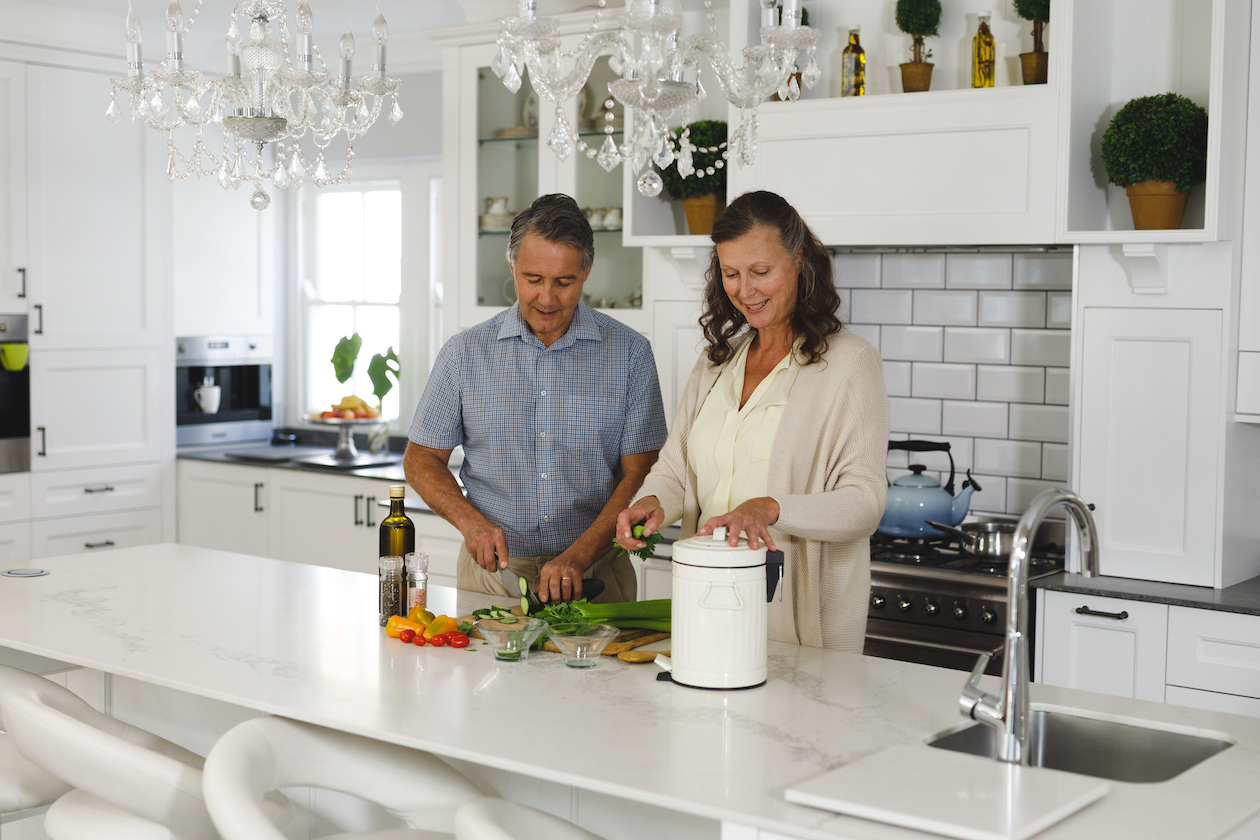Composting is a green way of turning organic material into fertilizer for soil. It is one way to reduce your household waste that would otherwise collect in the landfills while providing you with an inexpensive way to replenish the soil in your garden and flower beds.
In addition to its environmental benefits, composting also offers numerous advantages for gardening enthusiasts. By incorporating compost into the soil, you can enhance its structure and improve its ability to retain moisture, which promotes healthier root development and overall plant growth. Compost acts as a natural slow-release fertilizer, delivering essential nutrients to plants over an extended period. This nutrient-rich soil amendment enhances the health and vitality of your garden, resulting in vibrant blooms, lush foliage, and higher crop yields.
How does compost form?
Microorganisms and earthworms break down the organic materials that you put into your compost heap. When these materials have broken down, they are then in a form that becomes useful for plants to absorb.
What are some green reasons to compost?
Besides saving you money on fertilizer and reducing waste in the landfills, there are even more reasons to compost. These reasons include:
- Reduction of greenhouse gas emissions –
Waste that ends up in landfills produces a harmful greenhouse gas called methane. This is produced because air cannot reach the organic waste. In contrast, composting at home produces no methane because composting ensures an adequate supply of available oxygen during decomposition.
- Less need for garbage trucks –
When you (and everyone else) throw away less garbage, not as many garbage trucks need to be out using fuel and creating further emissions that enter the air.
- Less fertilizer runoff –
If you can use compost instead of fertilizer, it means less fertilizer that gets into our rivers, lakes, and oceans. The nitrates in fertilizer are responsible for creating large algae blooms, which consume and remove the oxygen from the water, resulting in “dead zones” which cannot sustain fish and other marine life.
What can you compost?
This is not an all-inclusive list by any means but gives you a place to begin.
- Vegetable and fruit peels
- Coffee grounds and the filter paper
- Rotten fruit
- House plants
- Leaves and grass clippings
- Tea bags and tea leaves
- Toilet paper rolls
- Eggshells (crush them)
- Old bedding plants
- Wool
- Pet hair
- Brown paper bags
- Vacuum cleaner contents
- Dryer lint from natural fibers
What can you not compost?
- Kitty litter
- Animal feces
- Cooked meat, vegetables, dairy products, bread, rice or pasta
- Bones
- Weeds with seeds (otherwise you’ll spread the weeds later)
- Treated wood
As you can see, composting the right kinds of materials will reduce how much you are throwing away and enhance your overall green living.
